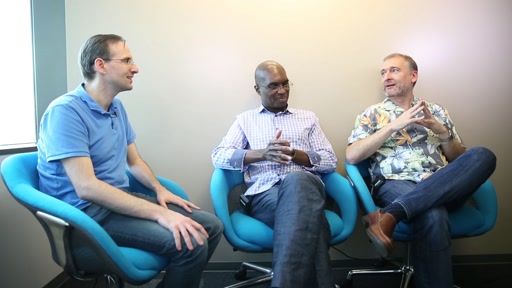GoingNative 55: ISO C++ @Issaquah Debriefing--Steve Carroll, Augustin Popa and Bryan DiLaura
 The new GoingNative is out!
The new GoingNative is out!
GoingNative 55: ISO C++ @Issaquah Debriefing
by Steve Carroll, Augustin Popa and Bryan DiLaura
From the video:
In this episode of GoingNative, Steve Carroll chats with Gabriel Dos Reis and Gor Nishanov about what happened at the C++ standards meeting in Issaquah, Washington.

 The new GoingNative is out!
The new GoingNative is out! The new CLion is here!
The new CLion is here! The new GoingNative is out!
The new GoingNative is out!